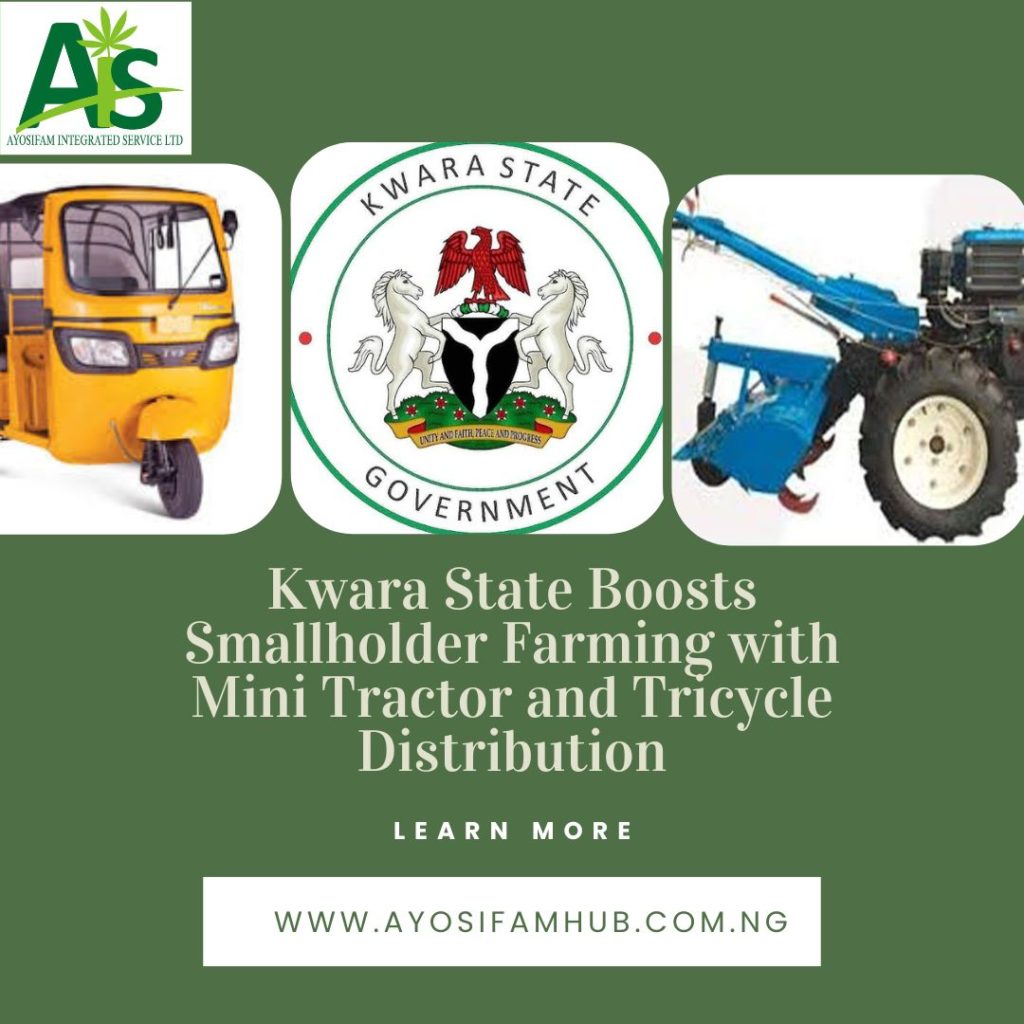In a significant move aimed at bolstering food production and empowering smallholder farmers across the state, the Kwara State Government has recently procured and commenced the distribution of over 66 mini tractors and tricycles. This initiative underscores the government’s commitment to modernising agricultural practices and enhancing farmers’ livelihoods in all Local Government Areas (LGAs) of Kwara State.
Recognising the pivotal role smallholder farmers play in ensuring food security and driving economic growth within the state, the government has strategically invested in providing access to essential farm machinery. The distribution of these mini tractors and tricycles is meticulously planned to directly benefit those who often face challenges in accessing or affording such vital equipment.
The selection of mini tractors is particularly pertinent as these machines are well-suited for the scale of operations typically managed by smallholder farmers. Their manoeuvrability and efficiency can significantly reduce the time and labour involved in crucial farming activities such as land preparation, planting, and harvesting. This increased efficiency translates to higher productivity, potentially leading to greater yields and improved income for the farmers.
Furthermore, the inclusion of tricycles in this distribution effort addresses another critical aspect of agricultural logistics – transportation. These versatile vehicles will aid farmers in moving inputs like seeds and fertilizers to their farms and transporting harvested produce to markets, thereby reducing post-harvest losses and improving market access.
The Kwara State Government has adopted a comprehensive approach to ensure that these resources reach the intended beneficiaries. The distribution process is targeting smallholder farmers in every LGA, acknowledging the diverse agricultural landscape and needs across the state. This widespread distribution aims to create a tangible impact on agricultural output throughout Kwara.
In addition to the direct allocation of these machines, the government has also extended an open invitation to organized groups of farmers. This proactive measure allows farming collectives to approach the state government with their specific needs and potentially gain access to mini tractors. This inclusive approach recognizes the strength of collective farming and aims to support larger-scale agricultural endeavors undertaken by farmer associations.
This investment in agricultural mechanization is expected to yield numerous benefits for Kwara State. Beyond the immediate impact on crop yields and farmer incomes, it is anticipated to stimulate rural economic activity, attract more youth to agriculture by making it less labor-intensive, and contribute significantly to the overall food security of the state.
The Kwara State Government’s commitment to supporting its agricultural sector through initiatives like this underscores a forward-thinking approach to sustainable development and economic empowerment. By providing smallholder farmers with the tools they need to enhance their productivity, the state is not only investing in the present but also laying a strong foundation for a prosperous agricultural future. This distribution of mini tractors and tricycles represents a significant step towards transforming the agricultural landscape of Kwara State and ensuring a more food-secure and economically vibrant future for its citizens.




